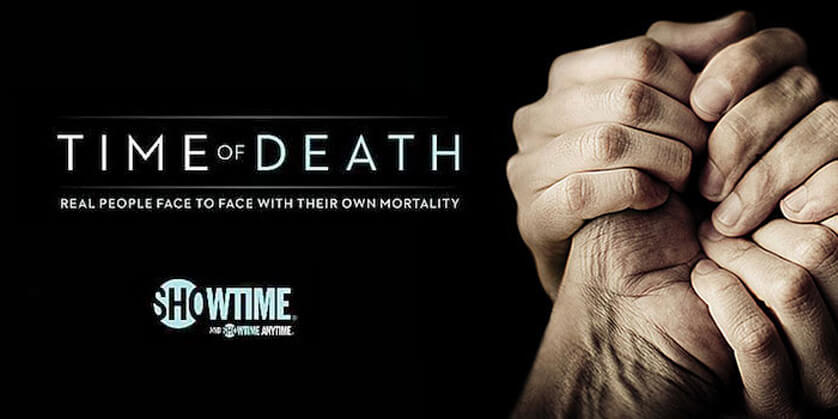Southern California Hospice Foundation collaborated with Showtime Television for over two years to develop the groundbreaking docu-series “Time of Death,” offering an intimate look at eight hospice patients’ final days and how they and their families coped with their pending mortality.
The patients volunteered to share their end-of-life stories on camera, demonstrating to viewers the revolutionary qualities of hospice care for the mind, body, and spirit. With hospice, patients can spend more quality time making memories with loved ones and experience a more peaceful death. They don’t have to fear dying unforgotten, in an institution or unfamiliar environment.
SCHF was on the hospice team for three of the patients featured in the series, working exclusively with them to help shepherd the patients through the entire filming process.
About the Documentary
A review written by James Poniewozik in the November 2013 issue of Time Magazine says, “Time of Death gives its stories structure, but it doesn’t tie them up neatly. Families come together or fracture. People make peace or get angry. They say goodbye or make it to the bedside too late. They offer words of comfort that go wrong. And at the end, there’s a body to remove, a house to clean.”
Although the show is dignified, it can feel intrusive, even when the patients explain that they want their story to be told.* The feelings of discomfort are inevitable because the show reflects real end-of-life issues. But we can change the way we choose to die when faced with a terminal illness—with or without hospice.
SCHF partnered with Showtime Television to shed light on the value and benefits of hospice care. The documentary will help people to develop a healthier relationship with death and dying so that any confusion, fear or doubt, anger or rage—the emotions that accompany death—will dissipate as viewers become more educated about what a good death looks like.
Our goal is to facilitate a dialogue about death and end-of-life wishes. Talking with loved ones about the reality of a prognosis is often very intimidating; it is easier to live in denial. But when those frank conversations do occur, it can lead to great intimacy and connection with friends and family.
*Filming was stopped when requested by patients. Some even carried their own cameras to film themselves privately.



